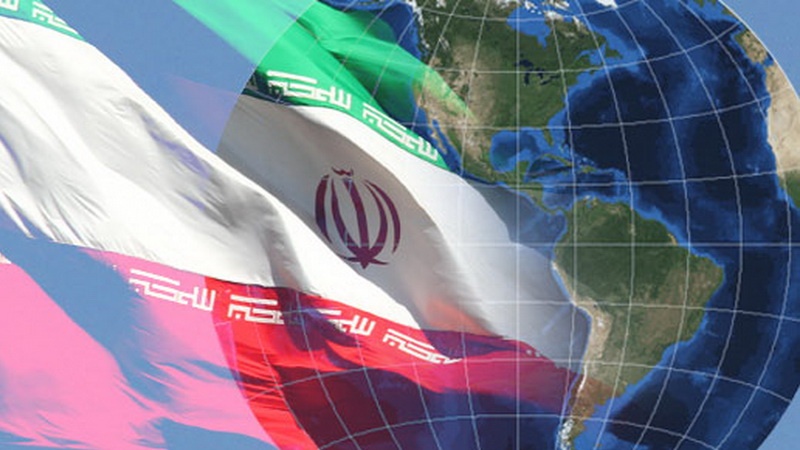At the turn of the new century and with trends towards globalization, trade exchanges were increased without the competitive boundaries of cold war era and mutual economic dependence among countries, economic issues turned to become the priority of their foreign policy. That’s why economic diplomacy gained more importance.
In its foreign policy attitudes, Iran has always put the economic diplomacy in its agenda too. Although during the tenure of office of some governments de-escalation of tension with the West and active cooperation with regional and international organizations were considered as required instruments for national development and realization of interests, during some other governments balanced economic policies with a glance to the East were employed in order to minimize the effects of sanctions and Iran’s economic development.
During the present government, the economic diplomacy has also been seriously emphasized, and Hossein Amir Abdollahian, Minister of Foreign Affairs, has announced that President Raeissi’s government concentrates on cooperation with neighbors and proceed with economic diplomacy and thus is determined to expand its bilateral and multilateral cooperation. Such an emphasis once again makes it important to deal with the modality how to set up and form an economic diplomacy within the foreign policy of
Iran. A diplomacy that seems to have obstacles and opportunities on its way to reach a suitable strategy and also will need security and political prerequisites.
In view of regional and global developments, today the importance of applying economic diplomacy within the foreign policy of Iran is felt more than ever in the past. In the peripheral region of our country, Iran plus 15 neighboring countries have a population of 560 million that enjoy an optimal share in world trade exchanges, and thus have created potential and noticeable economic capacities. The capacity which so far has been left useless or at least deprived from effective flourishment because of inefficiency of regional organizations particularly in economic aspect and existence of strong security competition. Thus, the necessity to reduce competition and removal of security challenges in the region and promotion of economic diplomacy from bilateral level to multilateral and regional levels can be a part of Iran’s strategy along with other countries of the region.
Obstacles and Opportunities
Iran and Saudi Arabia are located in a rich and strategic region that despite unquestionable influence of the two mentioned countries in its security and competition process and arrangements and also unique role of the two countries, particularly Iran in the region’s arrangement, yet the first place in economic field is at the disposal of countries like Turkey and UAE. In fact, because of the existing challenging atmosphere and high level arms competition in the region and lack of effective regional organizations, applying security policies have prevented the beginning of an active bilateral and multilateral economic diplomacy in the region. Issues that could be sorted out when effective decisions and strategy are adopted using the regional mechanism and paves the ground to extend the cooperation to other fields.
With Biden having taken office and the necessity to have strategic competition with China, the U.S. is gradually preparing itself to reduce its presence in the Middle East region. Reduction of missile systems and withdrawal from Afghanistan and Iraq are parts of the strategy. In this way, with the reduction of the U.S. presence in the region and weakened security umbrella for the southern countries of the Persian Gulf, adoption of a strategy based on diplomacy and bilateral as well as multilateral regional cooperation particularly between Iran and Saudi Arabia is considered important, and the realization of a bilateral and at later stage a comprehensive cooperation seems to be possible.
Ahead Strategy
There are important security and political prerequisites for cooperation between Iran and Saudi Arabia at two internal and external levels based on economic diplomacy which requires negotiation, settlement of disputes and taking destiny maker decisions by both sides. The first step to realize cooperation between countries is to reduce the security concerns. De-escalation of tension is the first step to this end.
As mentioned earlier, with the decreasing presence of foreign countries in the region and the U.S. weakening security umbrella, required opportunity to de-escalate tension will be provided for countries relying on the U.S. like Saudi Arabia.
Ultimately, with reduction of security concerns, the regional competition between the two countries in other countries of the region will be lessened because their intense need to the strategic depth will be minimized accordingly and then the importance of economic issues will appear to automatically be the top priority of the region. Ultimately, applying an economic diplomacy between Iran and Saudi Arabia (as it happened in connection with Germany and France after three great wars between the two countries that led to establishment of European Coal and Steel Community and at later stage to the European Union) can gradually extend to other issues and turns from bilateral form to become multilateral and regional one.










0 Comments